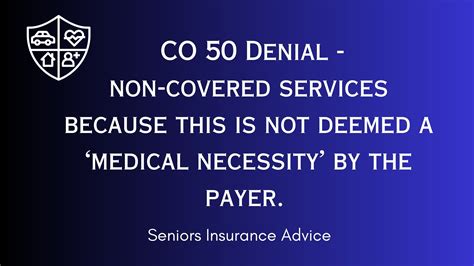The Most Effective Ways to Fix Your CO 50 Denial
Receiving a CO 50 denial from the Department of Veterans Affairs (VA) can be incredibly frustrating. This denial means the VA has determined you're not eligible for disability compensation based on your claimed service-connected condition. However, don't despair. Many veterans successfully overturn initial denials. Understanding the reasons for denial and employing effective strategies can significantly improve your chances of a favorable outcome. This comprehensive guide will explore the most effective ways to fix your CO 50 denial.
Understanding the CO 50 Denial
Before diving into solutions, it's crucial to understand why your claim was denied. The CO 50 notice usually outlines the reasons, which may include:
- Insufficient evidence: The VA may not have enough medical evidence linking your condition to your military service.
- Lack of nexus: The VA may not see a clear connection (nexus) between your current condition and an in-service event or injury.
- Service connection not established: Your claim may not have adequately demonstrated a service-related cause for your condition.
- Incomplete application: Your initial claim may have lacked essential information or documentation.
1. Reviewing the Denial Letter Meticulously
This is the most crucial first step. Carefully examine every detail in your CO 50 denial letter. Identify the specific reasons cited for the denial. Underline key phrases and points the VA used to support its decision. This detailed review will form the basis of your appeal strategy. Pay close attention to any requests for additional information or evidence.
2. Gathering and Submitting Supporting Evidence
Often, the core reason for a denial is insufficient evidence. Actively gather all available supporting documentation to strengthen your case. This may include:
- Medical records: Obtain all relevant medical records, including those from your time in service, from private physicians, and from VA healthcare providers.
- Buddy statements: Statements from fellow service members who witnessed your injury or illness can provide crucial corroborating evidence.
- Lay statements: Statements from family members or friends who can attest to the onset or severity of your condition can also be helpful.
- Private medical opinions: Consult with a private physician specializing in your condition who can provide a detailed medical opinion supporting your claim.
3. Understanding the Appeals Process
The VA offers several avenues for appealing a denial:
- Supplemental Claim: This involves submitting additional evidence to support your original claim. This is often the most straightforward and cost-effective initial step.
- Higher-Level Review: This allows a higher-ranking VA official to review your case and the evidence.
- Board of Veterans' Appeals (BVA): This is the final avenue of appeal within the VA system.
4. Seeking Assistance from Veterans Service Organizations (VSOs)
VSOs such as the American Legion, VFW, DAV, and AMVETS offer invaluable assistance with navigating the VA appeals process. They can help gather evidence, prepare your appeal, and represent you before the VA. Their expertise can significantly increase your chances of success.
5. Hiring a Veteran's Disability Lawyer
While not always necessary, considering legal representation can be beneficial, especially for complex cases. A qualified attorney specializing in veterans' disability claims possesses the knowledge and experience to navigate the intricacies of the appeals process and build a strong case.
Frequently Asked Questions (FAQs)
H2: How long does the VA appeals process take?
The duration of the VA appeals process can vary significantly depending on the complexity of the case and the chosen appeal method. It can range from several months to several years.
H2: What if I can't find all the necessary medical records?
If you're struggling to obtain complete medical records, the VSOs can often assist you in locating them. Explain your situation to the VA, as they may have access to additional information.
H2: Can I appeal a denial multiple times?
Yes, you generally have the right to appeal a denial multiple times, using different avenues, until your claim is resolved or you exhaust all options.
H2: Is there a cost involved in appealing a VA disability claim?
While the VA appeals process itself doesn't have direct fees, you might incur costs related to obtaining medical records or hiring legal representation. VSO services are generally free.
Conclusion:
Overcoming a CO 50 denial requires patience, persistence, and a thorough understanding of the appeals process. By meticulously reviewing the denial, gathering comprehensive supporting evidence, and seeking assistance from VSOs or legal counsel when needed, veterans significantly increase their chances of achieving a successful outcome. Remember, your service and sacrifice deserve recognition, and with the right approach, you can secure the benefits you rightfully earned. Don't give up; your claim is worth fighting for.

